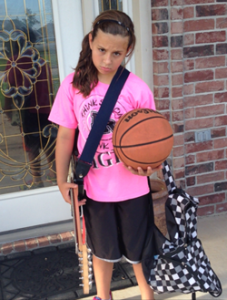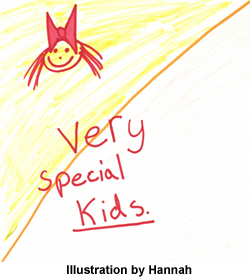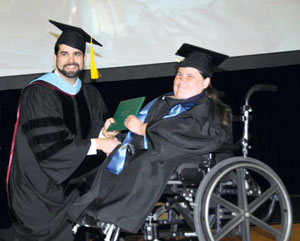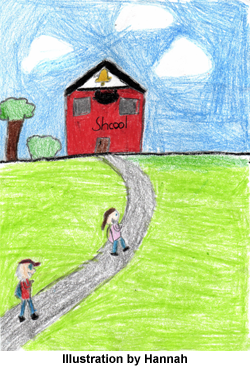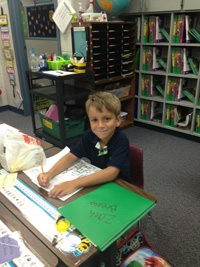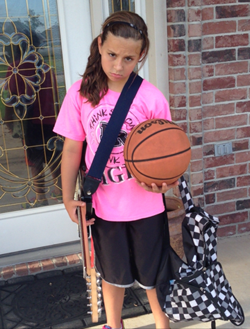 With school starting all across the nation, my posts have been devoted to calling attention to kids who need “a helping hand” as they begin the new school year: The New Kid in School and Kids With Special Needs. Teaching your child to show a simple act of kindness and being friendly to kids who fall into these two categories can derail a lot of hurt and pain these children might otherwise experience.
With school starting all across the nation, my posts have been devoted to calling attention to kids who need “a helping hand” as they begin the new school year: The New Kid in School and Kids With Special Needs. Teaching your child to show a simple act of kindness and being friendly to kids who fall into these two categories can derail a lot of hurt and pain these children might otherwise experience.
This week, I want to call attention to another group of kids who need “a helping hand.” May I introduce you to the Overscheduled Kid. Take a look at a schedule we might find in many homes across America today.
- 3:00 PM – School is out for the day
- 3:30 PM – Dancing, guitar lessons, karate, gymnastics
- 4:30 PM – Soccer practice
- 5:30 PM – Dinner at McDonald’s
- 6:30 PM – Church Activity
- 8:00 PM – Homework
- 10:00 PM – Bedtime
Though that is an imaginary scene, I have to believe it is a replica of many children’s schedule being played out in homes all across the nation as the school year begins. Studies that I have read confirm that The Overscheduled Kid is fast becoming an epidemic that is spreading across our society. The whole family is caught up in a juggling act trying to keep up with all the activities their children are involved in.
I am no prude who thinks a child should not have activities outside the home. I made sure my own children were engaged in extra-curricular activities when they were growing up. But, I believe there must be a balance in doing so, less the child and parent suffer from burn-out.
A good check list for balance might look something like this:
- Are your kids still sleepy as they begin a new school day?
- Are they grouchy?
- Do they seem stressed?
- Are you having to carpool with a friend just to keep up?
- Does your child have unstructured play time, or is all their time orchestrated and scheduled?
- Does your child have a quiet time to explore ways of using their own creativity?
- Is there time in their day just to read a book?
- Is there time in their day for them to do chores around the house?
- Is there time in their day for family time?
- Is there time in their day for quiet time with God?
As I reflected on these points this week, my thoughts turned to the Bible story of Samuel in 1 Samuel 3. The story goes that one night Samuel heard a voice calling his name. According to the Jewish historian Josephus, Samuel was about 12 years old at the time. He initially assumed it was coming from Eli (the high priest with whom he was living) and went to Eli to ask what he wished to say. Eli, however, sent Samuel back to sleep.
After this happened three times, Eli realized that the voice Samuel was hearing was the Lord’s, and instructed Samuel to respond. Once Samuel responded, the Lord spoke his message to Samuel.
Food for thought: Do you suppose the reason Samuel was able to hear God’s voice at such a young tender age was because he was not inundated with so many distractions — aka, TV, video games, overloaded schedule, etc.
Parents, I have to believe as children spend quality time with family and God, along with a balanced activity schedule, they will begin to feel more relaxed, and above all, at a young tender age quite possibly get a glimpse of who God created them to be. After all, didn’t God speak to Samuel at a young age?
In closing, I challenge you to take a close look at the picture of Hannah with all the “activity gear” loaded on her. May I hasten to say, it in no way reflects the way her parents are rearing her; they try to keep a balanced life for her and her brother, Zach.
But, use her picture as a reminder to ask yourself: “Is this my child?” “Do I need to get back to the basics of what really matters – creativity, family time, and yes, quiet time with God.” Might be time for a little soul searching.
Join Hannah and me right here next week, as we continue our journey to help hurting kids.









